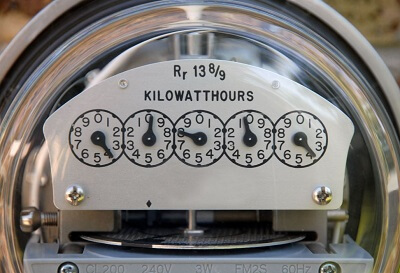4 Facts You Must Know About Net Metering 2.0


Changes to the solar power industry, also known as net metering 2.0, will soon affect the way solar energy is handled in the San Diego Gas & Electric (SDG&E) service territory, which includes San Diego County and parts of South Orange County. For many consumers, there are still more questions than answers.
While details about how residential and commercial solar power installations will be handled under the new rules still need to be sorted out, it’s important to be informed about what net metering 2.0 means for you and your family’s energy future.
We’ve answered a few common questions you might have about the new solar power rules.
1: When do the new net metering 2.0 rules go into effect?
Net energy metering in its current form, also known as net metering 1.0, will end when five percent of an investor-owned utility’s peak power comes from renewable energy sources or in July 2017, whichever comes first. Given how much San Diegans love clean, green solar power, it’s anticipated that the solar energy cap will be hit around July 1, 2016 in SDG&E’s territory. To be included in net metering 1.0, SDG&E must receive a completed NEM application and the final electrical inspection from the city/county inspectors. Those who do not meet that criteria will be placed on net metering 2.0.
Customers in Orange County and the Inland Empire, who are serviced by Southern California Edison, will likely see their solar cap reached in July 2017.
If a customer adds 1kW or 10% more kW to their existing solar power system, whichever amount is lesser, they will be grandfathered into net metering 1.0. If the addition exceeds that amount, the customer will be switched to net metering 2.0.

2: What if I already went solar - does net metering 2.0 apply to my existing solar system?
The short answer is no. Once the net metering cap is reached, net metering 2.0 will activate and the price and rules around solar power will change. Solar power users who get grandfathered into net metering 1.0 will not be affected by the new pricing structure.
However, new customers who go solar after the cap is reached will be subject to the new net metering rules and pricing.
3: What do net metering 2.0 rules mean for the cost of solar power?
A lot is still unknown about net metering 2.0, but it is anticipated that the new rules will mean solar power users will pay a little bit more to their local utilities through new fees, but in the long run, going solar remains an excellent way to save money and help save the environment. Solar power is still an excellent investment no matter when you choose to make the switch. SDG&E and other Southern California utilities will pay less for every megawatt of power that is generated by solar customers and placed on the region’s power grid. There will also be one-time connection fees paid to your utility for solar power hook ups and other monthly fees for managing your solar energy.
This is why it’s more important than ever to go solar today, and realize the maximum financial benefits and knowledge that you’re gaining, all while helping preserve our environment by reducing the consumption of fossil fuels.
4: Do I need an experienced solar power company to help me with net metering 2.0?
Yes! The new and complicated changes to solar power mean, now more than ever, you need an expert to show you how to make solar work best for you. Don’t go into battle against the utility alone!
Let Sullivan Solar Power be your expert guide through net metering 2.0. Don’t trust your family’s energy and financial future with anyone else. We’ve been on the front lines of the net metering battle for years and had a hand in helping shape the new regulations. No solar power company knows the ins and outs of net metering 2.0 better than us.
Do you still have questions about solar power and net metering 2.0?
The changes to solar energy in San Diego and SDG&E territories in Orange County will affect your solar power savings. Sullivan Solar Power is an industry leader in Southern California and has the expertise to help guide you through the process of going solar under the new rules. Contact us today by visiting SullivanSolarPower.com or calling 1-800-SULLIVAN to speak to one of our dedicated project developers.